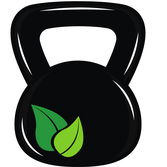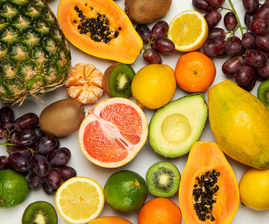|
Transitioning to a vegan, plant-based diet was hands-down one of the best decisions I have ever made. I did not truly understand the connection between the food I ate and how it affected my body until I removed meat and dairy from my diet entirely and started adding in a variety of nutrient-dense plant foods. My energy levels increased, and my post-workout recovery time decreased. My menstrual cycle, which had always been heavy and painful, shortened and improved tremendously. My stomach, which ailed me constantly since childhood, seemed to strengthen as the aching reduced and bowel movements normalized. These are just a few of the many benefits I've personally experienced from consuming a plant-based diet. Over the years, I've heard and witnessed countless testimonies of near-miraculous transformations from people who have ditched the Standard American Diet (SAD) in favor of a healthier way of eating. The best part is that there's nothing mystical about the transformational potential of plant-based eating; it's all backed by science. What is a plant-based diet? "Plant-based" is an umbrella term encompassing several dietary patterns that heavily (or entirely) rely on plant foods. 
Each of these diets incorporates varying amounts of animal products, but plant foods serve as the foundation of the diet. As a general rule of thumb, the closer you get to a diet based on primarily whole, plant-based foods, the more health benefits you'll reap. What are the health benefits of a plant-based diet? Studies have shown that fruit and vegetable consumption is linked to a reduced risk of cancer, heart disease, and all-cause mortality. (Source) The converse is also true: not eating enough fruits and vegetables increases your risk of developing and dying from certain chronic diseases.
Eating a diet rich in a variety of fruits, vegetables, whole grains, legumes, mushrooms, nuts, and seeds has been proven to:
This is just the tip of the iceberg of what a diet rich in whole, unprocessed plant foods can do for our health. More studies are being conducted on the benefits of plant-based diets for numerous additional chronic health conditions. Why are plant-based diets so beneficial?
Plant foods are jam-packed with nutrients, vitamins, and minerals that our bodies need to function optimally. Plants also exclusively contain fiber and disease-fighting phytonutrients that cannot be found in meat or processed junk food. As a matter of fact, "plant-based" diets that include heavy amounts of processed junk foods can be detrimental to health as many of the nutritional components have been stripped from the food during processing. They also contain many unwanted ingredients like excess saturated fat, sodium, and refined sugars. On the other hand, food in its most natural, whole form provides the body what it needs to protect against disease. Going plant-based can be a massively rewarding journey as you explore a variety of new foods while also seeing significant improvements in health. If you've been thinking that it's time for you to pay more attention to how you eat, then start piling on the plants!
0 Comments
Leave a Reply. |
AuthorNiv Mullings is a Plant-Based Personal Trainer and Weight Loss Specialist from the Bronx, New York, currently residing in Jacksonville, Florida. After years of struggling with obesity, anxiety, depression, painful menstruation, and other chronic health complaints, Niv changed her life for the better through fitness and a healthy plant-based diet. Now she helps others to do the same. Archives
December 2022
Categories
All
|
|
COPYRIGHT © NIV MULLINGS 2021
|
Proudly powered by Weebly





 RSS Feed
RSS Feed
